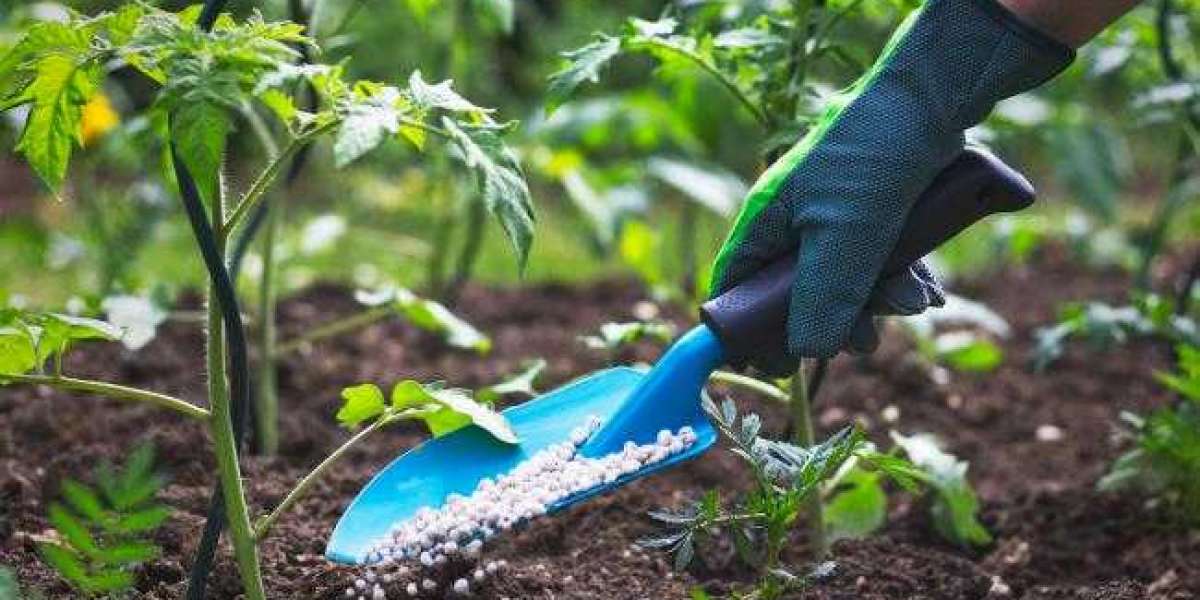For plants, the source of minerals in soil and fertilizers. Fertilizers are just like supplements, added to the soil to enhance the growth of plants.
You have chemical as well as natural fertilizers. But what are the best fertilizers for a vegetable garden? How can we choose the best fertilizers for a vegetable garden without harming them?
Farming is a tough job and requires muscular strength and intelligence. You need to know the type of nutrition required by the vegetable. For example – leafy vegetables like lettuce, kale, and spinach require a high amount of nitrogen, whereas tomatoes and peppers need calcium and phosphorus to support blooming and fruit set.
If you have started planting your vegetable garden and are wondering which fertilizer is best, you are at the correct place. fertilizer for vegetable garden
, We’ll guide you about the best fertilizer for a vegetable garden.
CHEMICAL/SYNTHETIC -VS- NATURAL/ORGANIC FERTILIZER FOR VEGETABLES
Whenever we talk about the nutrition of vegetables, we always prioritize using natural and organic fertilizers over chemical ones. Though there is no severe harm in using chemical fertilizers in limited amounts, maintaining such balance becomes messy with time.
Chemical fertilizers are beneficial for instant gratification, but they cause damage to the health and fertility of the soil. They also harm the roots of the plants and sometimes end up killing the plant. Also, chemical fertilizers are not a healthy way to nourish plants.
On the other hand, Natural or organic fertilizers build up the soil over time, providing the rich and fertile nourishment they need to thrive.
Rich and fertile soil form a stronger foundation for healthier plants, higher yields, and delicious and nutritious vegetables for us.
So, what are the best fertilizers for a vegetable garden? Without a doubt, natural and organic fertilizers are the best for your garden. They might cost you more bucks, but the results are worth it.
WATER SOLUBLE VEGETABLE GARDEN FERTILIZERS
Water soluble fertilizers often come in a concentrated form. They get easily absorbed by the plants. It means water soluble fertilizers work faster than granules. They get mixed up in the soil and nourish the plants.
The disadvantage of using them is their time. It does not last long and needs to be applied more often for results.
SLOW-RELEASE VEGETABLE PLANT FOOD
The name suggests the type of fertilizers it is. Slow-release vegetable food is granules providing nourishment to the soil over an extended period. It means there is no need to apply them repeatedly.
The granules do not start working immediately like water soluble fertilizers. It takes time for the granules to get absorbed in the soil.
Here we have a list of natural and organic fertilizers for your vegetable garden.
Best Fertilizers for a vegetable garden
Burpee Bone Meal
The fertilizer has a high nitrogen and phosphorus content (6-8-0 NPK). Bone Meal is a great source of nourishment for onions, garlic, and long-season crops by supporting roots and bulbs and giving a boost to process photosynthesis.
Note, however, that high-nitrogen fertilizers can lead to foliage overgrowth, so they should be swapped out for a lower nitrogen product later in the life cycle for fruiting plants.
Down To Earth Acid Mix
Some gardener prefers an acidic substrate for Cucumbers, radishes, garlic, carrots, and fruits like blueberries and raspberries. Plants loving acid are served with fertilizers aiming to increase acidity. If these conditions aren’t fulfilled, the plant will suffer.
Down to Earth (or DTE), Acid Mix supports such needs. It has cottonseed meal, produced as a byproduct of the cotton industry, and has an NPK ratio of 4-3-6.
Alaska Fish Emulsion
Leafy crops such as lettuce, and spinach requires a heavy dose of nitrogen. Alaska Fish Emulsion is a liquid fertilizer and an excellent product, with a 5-1-1 NPK ratio.
You can also use them for cucurbits, brassicas, and nightshades but only during the growing process.
Plant roots absorb the fish emulsion quickly and show better results. Since it’s a liquid fertilizer, so it effortlessly washed away.
Dr. Earth Bulb Food
Dr. Earth Bulb Food is one of the best fertilizers for a vegetable garden, available in both liquids and granules. It is a granular conditioner made especially for tuber and root crops (and flowering bulbs), with a 3-15-2 NPK ratio.
Dr. Earth Bulb Food is rich in phosphorus and is the most vital nutrient for healthy root development. It is best for vegetables such as carrots, potatoes, radishes, beets, and all those producing edible roots.
Eco scraps Leafy Greens Plant Food
It is a blend containing recycled organic materials from food industry waste. It is like compost with a ratio of 5-4-5 NPK.
Eco scraps Leafy Greens Plant Food is formulated for leafy vegetables such as kale, spinach, and lettuce, and crops require a foliar boost.
It is one of the best fertilizers for a vegetable garden because of its balanced ratio of nutrients and even beneficial for other crops that need nitrogen.
Growganica Kelp It Real Seaweed Extract
Growganica Kelp It Real Seaweed Extract is a seaweed extract that adds up to 70 enzymes, vitamins, and minerals. It’s a combination of 0-0-14 NPK, supporting plants and encouraging health and blooming.
The application of this fertilizer on Potatoes, okra, and corn does magic and provides nourishment.
Espoma Garden-Tone
The last one on the list of best fertilizers for the vegetable garden is Espoma Garden Tone. Their organic, slow-release formula does wonders for many crops with its 3-4-4 NPK ratio.
The formulas also contain beneficial microbes to improve soil health. Tomatoes, kale, herbs, asparagus, and cucurbits are among the benefits of Espoma Garden tone.
You can also apply them between rows of seedlings one to two weeks after sowing. Just be sure to water it well.








